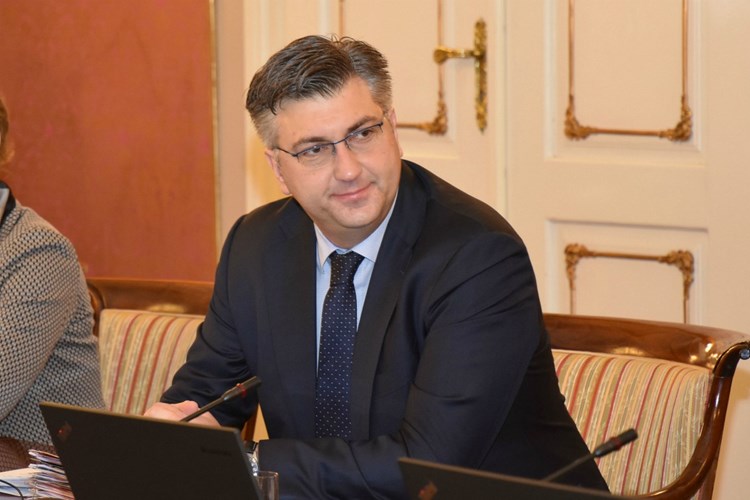- Published: 22.03.2018.
PM: Istanbul Convention deals with domestic violence, violence against women
The Croatian government on Thursday forwarded to the parliament a bill on the ratification of the Council of Europe Convention on preventing and combating violence against women and domestic violence (Istanbul Convention), accompanied by an interpretive statement.
Prime Minister Andrej Plenkovic said that the convention dealt with a difficult social phenomenon, violence against women and domestic violence, which he described as a pan-European problem.
"The important thing about this convention is statistics from the Ministry of the Interior, which say that from 2013 to 2017, 195 people were killed in Croatia, including 91 women. Of them, 63 were killed by persons close to them, including 46 who were killed by their partners. That is what matters and we must deal with that. That is why this Convention must be supported in the parliament to strengthen mechanisms for the prevention of this negative phenomenon," said the PM.
"This is a pan-European problem. Work on the Convention started at the time of an HDZ-led government between 2007 and 2009. During the term of another HDZ-led government, from 2009 to 2011, that work was continued and completed. During the term of an SDP-led government, the Convention was signed," said Plenkovic.
He noted that the SDP had three years to forward the Convention to the parliament for ratification but did not and that it was now pressuring the government into doing it.
That the Convention is being sent to parliament is not due to pressure by the Opposition or associations, but due to the government's strong and clear will to ratify the document, in the firm belief that it will raise public awareness of violence against women and domestic violence. "That is the essence, no more, no less," said Plenkovic.
He dismissed reports that financial obligations arising from the Convention would amount to a billion kuna annually.
"Such reports are not true."
As for GREVIO, the body which will oversee the implementation of the Convention, Plenkovic said that similar bodies oversaw implementation of other Council of Europe conventions. "The fight against corruption is overseen by a body called GRECO. This body occasionally oversees the implementation of this Convention, no more, no less," he said.
Plenkovic added that given the connotations of gender and the so-called gender ideology, taking into account the concern of some social stakeholders, the government decided to include an interpretive statement in Article 4 of the bill on the ratification of the Convention.
"It is an instrument used by countries when they wish to explain the scope of individual provisions. They are not our own invention, they are part of international law. Due to the sensitivity of one part of the public, we will adopt three messages - that the Convention does not imply assuming any obligation to introduce anything that would be contrary to Croatia's legal order, that it does not introduce gender ideology in the country's legal system and that it does not change the definition of marriage."
"There is no hidden agenda here. I am proposing with full responsibility that we send this bill to the parliament," said Plenkovic.
Text: Hina
